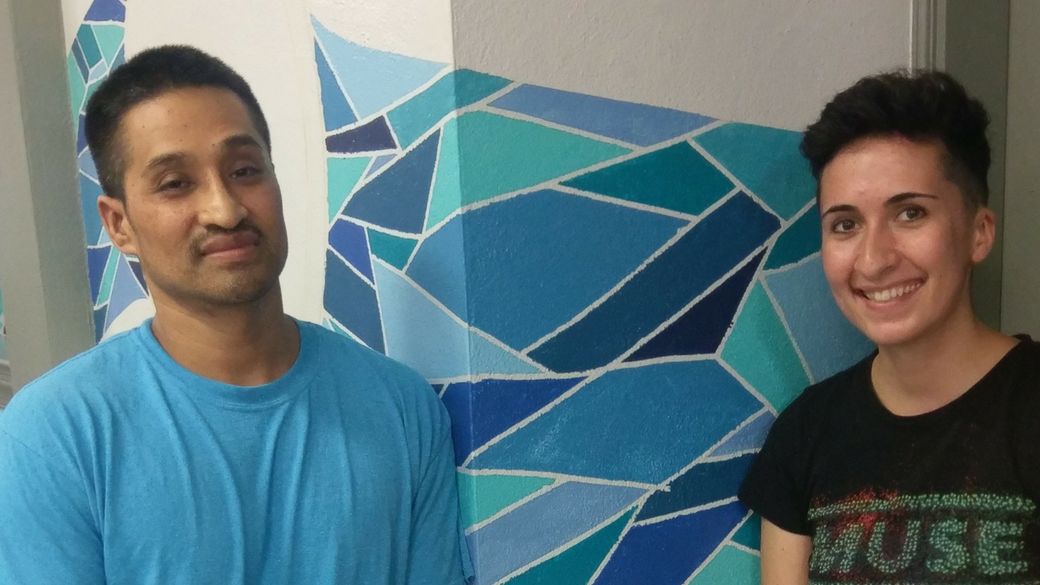Becoming a sanctuary church: An interview with the Rev. Robin Hynicka
In November, 2016, with the support of community partners, Arch Street UMC opened a space for Javier Flores Garcia to live in sanctuary at the church. Javier — a 40-year-old husband and father of three U.S. citizen children — has been living, working and raising his family in the U.S. since 1997. In November he received a deportation order even though his immigration case is pending.

In March, 2004, Javier Flores Garcia, was the victim of a horrific crime when two men mistook him for somebody else. They proceeded to stab him multiple times and left him for dead. After his miraculous recovery he aided local police in the resulting investigation, which led to the capture of the men who attacked him.
This unfortunate incident made Javier eligible for what is known as a U-Visa, a type of immigration relief for immigrants who are victims of crimes in the U.S. and collaborate with police. Unfortunately, U.S. immigration services refuses to approve his U-Visa. It has been pending for nearly two years.
While building community together, Javier, his family, and the Arch Street team continue to advocate for a just process with his immigration case. The past 8 months has been one of love, learning and transformation for all who are connected to this community.
The Rev. Robin Hynicka shares his reflections on what it means to be a Sanctuary Church.
Why did you become a Sanctuary Church?
As a member church of the New Sanctuary Movement since 2010, the people of the Arch Street UMC are committed to providing Sanctuary in all of its forms: physical sanctuary, accompaniment to hearings, advocacy to change state and local policies that deny quality of life, direct action to push for comprehensive immigration reform, organizing with immigrant rights groups to promote “know your rights” training and providing opportunities for cultural celebrations and fellowship.
What from your faith sustains you in this work?
Whenever and wherever the world’s systems of governance violate basic human rights, deny due process and operate to privilege the powerful, a universal system of sacred resistance based on the rule of love arises. Sanctuary arises from empathy not imperial edict; arises from the spirit of the law not the letter of the law and arises from the uncommon courage of the oppressed to resist evil and demand justice. Sanctuary is a spiritual designation not a religious or political statement. Sanctuary is a way of living out a sacred covenant to seek justice, love kindness and walk humbly.
What have been the biggest obstacles?
Only recently did the U.S. Citizenship and Immigration Services indicate that Javier’s case was under review. Javier has been in Sanctuary at Arch Street since November 13, 2016. His attorney is excellent, and, along with the advocacy of Javier’s family, JUNTOS (an immigrant rights organization) and Arch Street, it looks like there is some movement but caution is the operative position to maintain.
Javier, in addition to worshipping with the congregation every Sunday, contributes every day to the operation of the church’s programming and community service. He and his family painted the large fellowship hall in preparation for the installation of a mural designed by US-2 Missionary Rachel Ternes. The exchange of good will and human dignity has been amazing.
What’s one thing you think other churches considering this ministry need to consider?
Seriously consider these questions:
What do you know about the Sanctuary Movement and the various ways congregations and communities of conscience can participate? (There are many ways to be involved in providing Sanctuary that do not include providing physical space for a person/family:
a. provide financial support to your local immigrant rights organization. These groups are already active and need support to build their capacity to do more.
b. provide space and collaborate with trusted trainers to offer “KNOW YOUR RIGHTS” training.
c. provide volunteers to be trained to accompany undocumented persons to status hearings and other appointments where there is a threat that Immigration, Customs and Enforcement (ICE) Officers might be waiting to arrest someone.
d. provide volunteers to be trained to be part of a Rapid Response Team that when called will show up to observe and offer a sacred presence during an ICE raid.
e. educate yourself on immigration practices and policies and the history of migration in the United States.)What is your congregation’s profile in the community? What does the community say about the way you relate to it? In particular, what is your relationship with the local immigrant community and what reason have you demonstrated to them to build trust?
What is your congregation’s appetite for risk? Providing physical sanctuary is an act of spiritual and moral conscience that is open for interpretation by a court of law.
What is your congregation’s commitment to give up control, in order to be led by those most at risk and their closest allies? Are you willing to center the voices and honor the choices of those seeking Sanctuary?
What is your congregation’s experience with handling media attention?
What is your congregation’s capacity to offer the physical space (private room, shower, access to kitchen and other spaces) and to sustain spiritual and moral support for months and perhaps years?